Is it time for peace in Turkey?
- Published
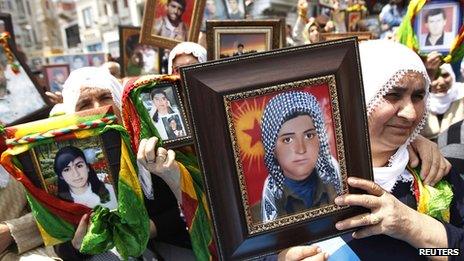
This time last year, Turkish TV channels were broadcasting news of the brutal clashes between the PKK and the Turkish army across the east of the country.
The 30-year-old conflict had escalated to its highest level for many years.
Then, peace seemed a far-distant goal for the Turks and the Kurds. However, one year on, the climate is totally different.
As Turkish Prime Minister Recep Tayyip Erdogan announced at the end of last year, a "dialogue" had begun with jailed PKK leader Abdullah Ocalan, which brought a new expectation for peace.
But how did things switch from a war agenda to a peace agenda?
Most experts say the AKP (Justice and Development Party) government came to the realisation that the solution to the Kurdish issue would not be achieved through the military strategy that had been implemented for the past 30 years.
It is thought the AKP started to question the efficiency of this military strategy, especially after last year's violence escalated.
Paris-based Kurdish researcher Mustafa Pekoz says: "The Turkish government's policy aiming to eliminate the PKK went bankrupt last summer.
"In 2012, the PKK launched a new strategy called the 'People's Revolutionary War' which aimed at taking over some areas in the south-east region. And that strategy undermined the Turkish army's operations," he says.
"I think it would be accurate to argue that this peace process is the final exit for the Turkish state," says Turkish journalist Rusen Cakir.
He adds this is also true for the Kurdish movement: "They also want to end a war which they are not losing, but they have come to realise that they cannot win."
Election factor
Local and presidential elections are due to take place in 2014 in Turkey. There is also a possibility, being discussed among MPs, that the 2015 general elections may be held a year ahead of schedule.
Zeynep Kaya, a researcher at the department of International Relations of the London School of Economics, says it may have been an important factor in initiating the recent peace process.
"Solving the problem and ending the war would be seen as a positive step for the AKP's election prospects," Ms Kaya says.
It is also thought Mr Erdogan needs the support of the pro-Kurdish BDP (Peace and Democracy Party) to achieve his ambition of becoming Turkish president.
Some analysts say that stepping up the peace process could help Mr Erdogan win the support of the BDP for his main ambitions: constitutional reform to strengthen the presidency, and his own election to the presidency in 2014.
The Syrian effect
The Kurdish detente is also connected to the conflict in neighbouring Syria. While Turkey supports the Syrian rebels fighting against Bashar al-Assad's government, it faces a dilemma which it did not expect.
In the power vacuum resulting from the Syrian conflict, the Democratic Union Party (PYD), a pro-PKK organisation of Syrian Kurds, started to set up an autonomous region in the north of Syria.
This strengthened the PKK in the region, causing concern for the Turkish government.
"Turkey wanted to control the PYD's activities in the area and this did not happen. In a way, the Turkish government has ended up in a situation where it is having to solve the problem in Turkey to be able to control these activities," says Ms Kaya.
In an interview with BBC Turkish last month, PYD leader Salih Muslim criticised the Turkish government for supporting rebel groups which were attacking the PYD and called on Turkey to pursue "peaceful politics" for the Kurds of Turkey as well as Syria.
Wary optimism
Recently, Turkey has also stepped up economic relations with the Kurdistan Regional Government (KRG) in northern Iraq; so much so that Iraq - mainly its Kurdish area - has become the second largest export market for Turkey, after Germany.
The KRG is now pushing ahead with plans to build an oil pipeline between Turkey and northern Iraq.
KRG spokesman Safeen Dizayee and the head of foreign relations for the KRG's ruling party, the Kurdistan Democratic Party, Hemin Hawrami, told BBC Turkish last month in Irbil that they both fully supported the peace process in Turkey and said they were ready to help the process if necessary.
Scepticism remains.
Some Kurds fear the government's real goal is to disarm the PKK and neutralise the Kurdish political movement.
The AKP is uncomfortable with the Kurdish movement proclaiming it has brought the Turkish state "to its knees".
While many Turks, including the nationalists, perceive the developments as "a compromise with terrorists".
So the feelings of the majority of Turkish citizens are often described as "wary optimism".
- Published21 March 2013
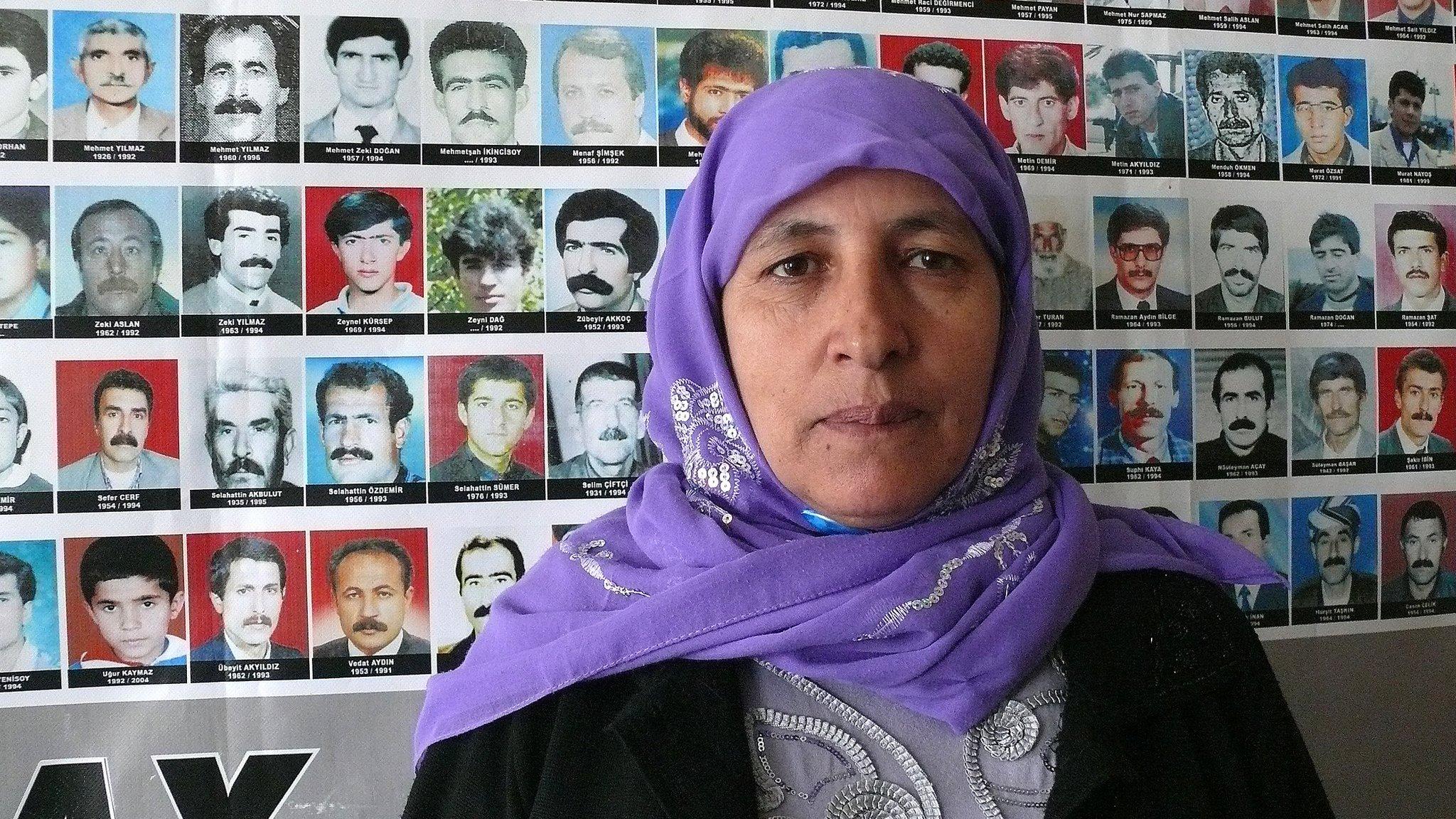
- Published4 November 2016
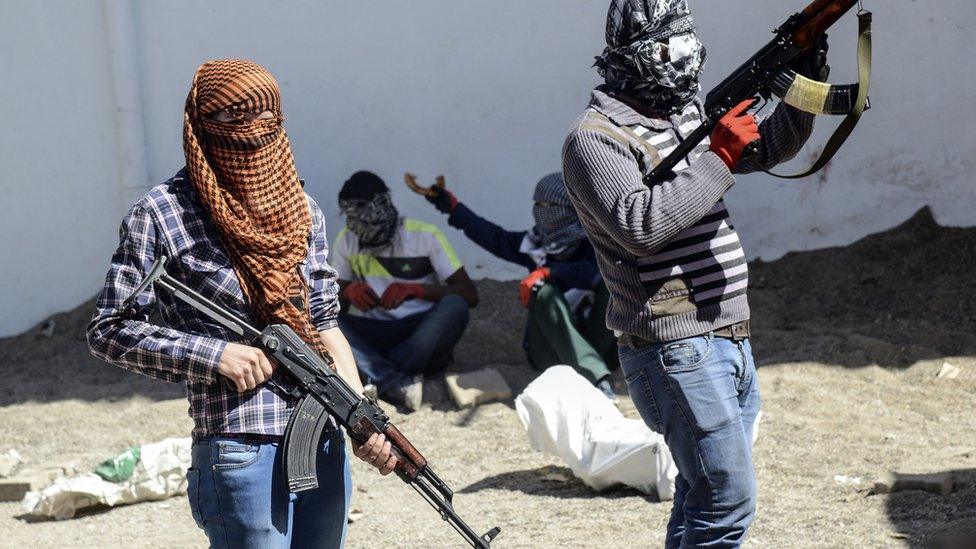
- Published4 February 2013
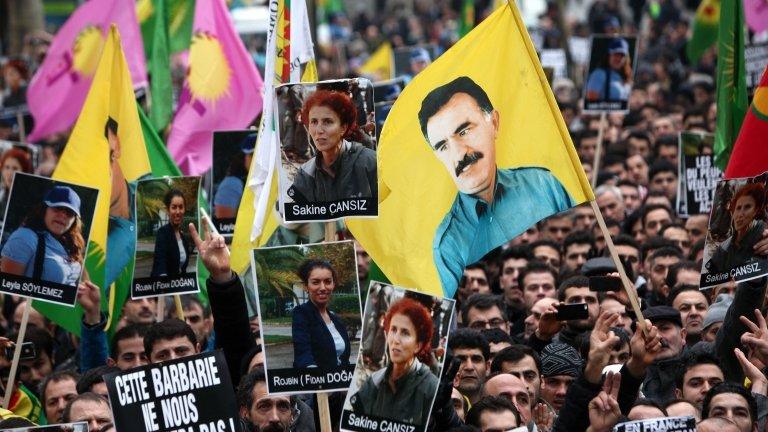
- Published13 March 2013
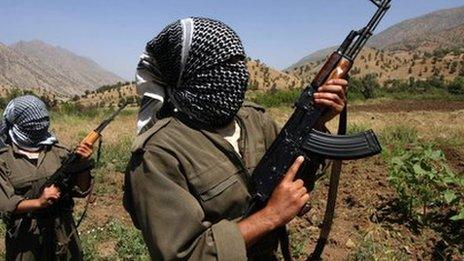
- Published10 January 2013
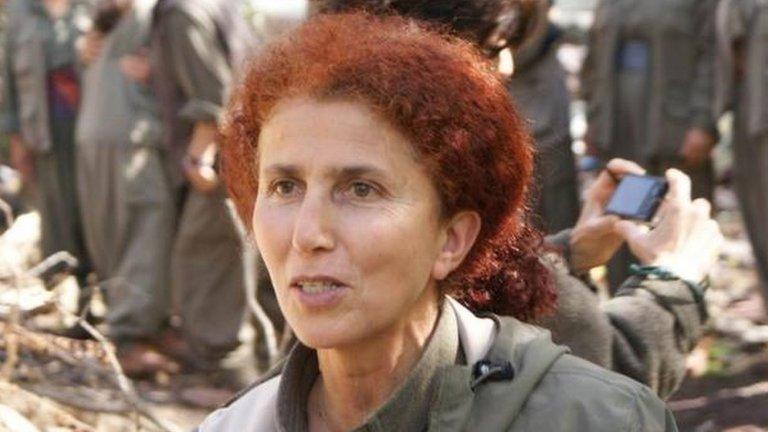
- Published18 November 2012
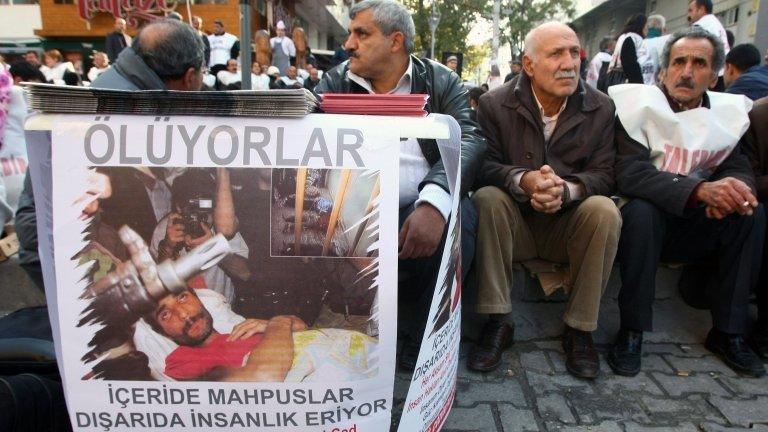
- Published11 October 2012
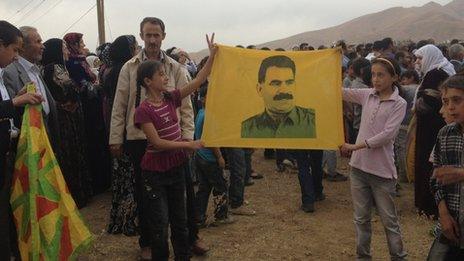
- Published22 August 2023
